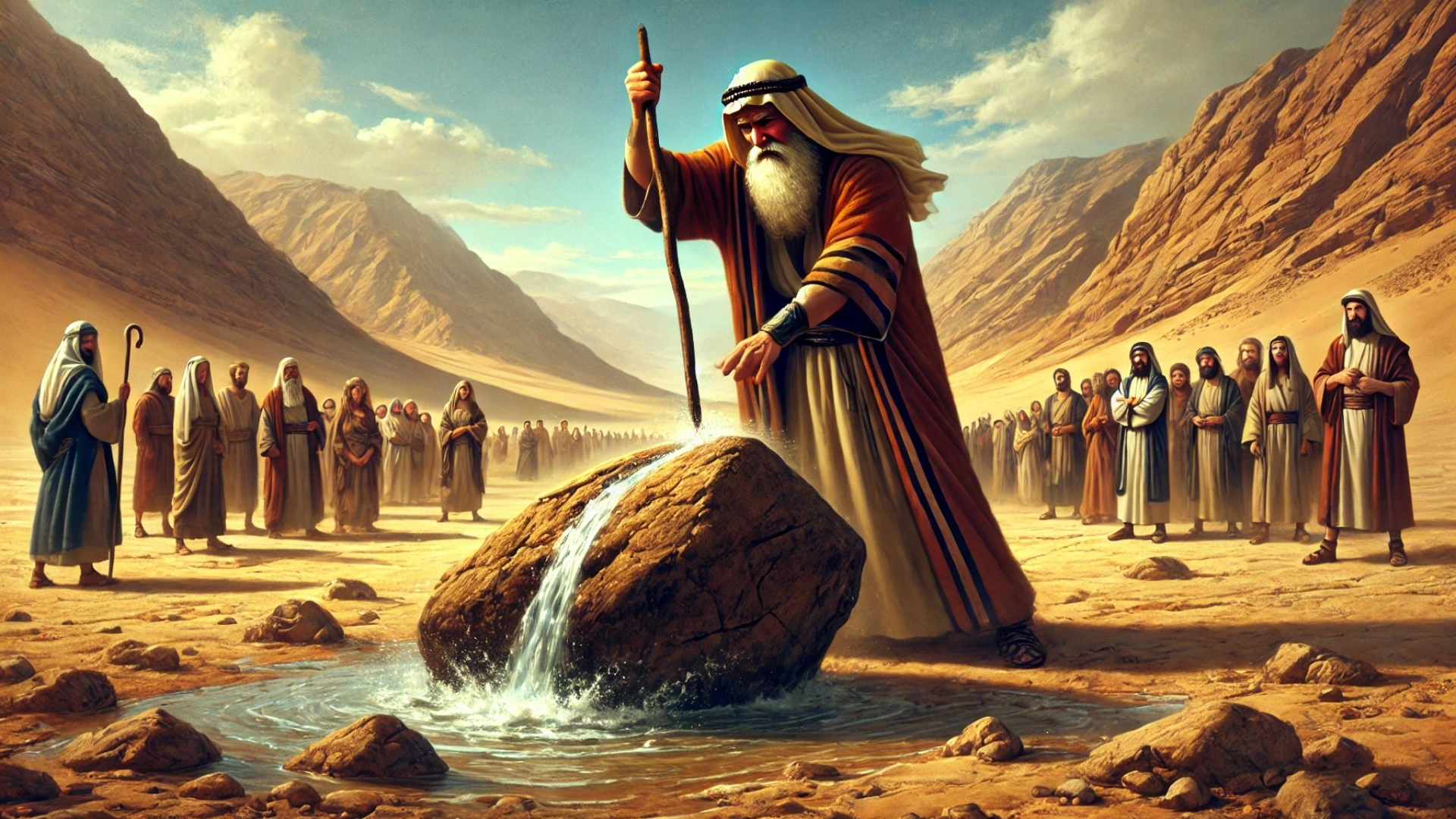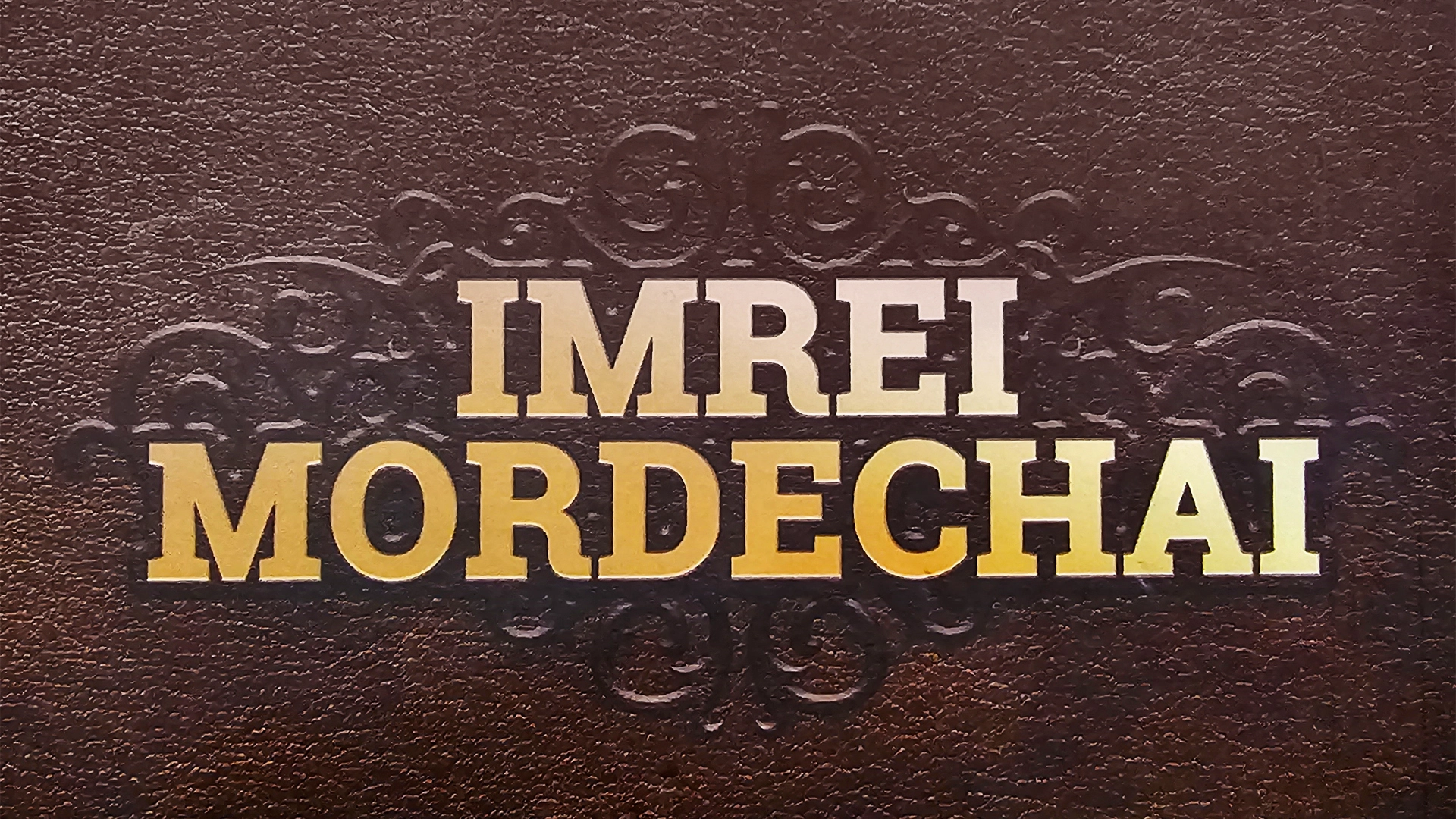October 13th, 2024 / 11th of Tishrei 5785

In Parshas Matos, in relating the war against Midian, it states (Bamidbar / Numbers 21:13-15): “Moshe [Moses], Elazar the Kohen [Eliezer the Priest] and all the leaders of the assembly went out to meet them outside the camp.”
Imagine the scene: With Hashem’s help, the war was won, and Moshe was on his way to greet the victorious troops. These were Jews who were willing to give their lives for Klal Yisrael, and who had merited awesome siyatta d’Shemaya [help from Heaven] in reaching their victory. It was heady moment for the nation — or so we would have thought.
What happened was that Moshe, the humblest of all men, suddently vented his rage against these national heroes:
“Moshe was angry with the commanders of the army . . . and said to them: You let every female live? But it was they who caused the Bnei Yisrael [Children of Israel] . . . to commit a betrayal against Hashem…”
Isn’t anger considered one of the worst traits of character, if not the worst, as the Ramban states in his famous Igeres: “And anger is a most serious flaw, which causes one to sin. Our rabbis taught, ‘whoever flares up in anger is subject to the discipline of Gehinom [Hell].'” And yet, we see here that Moshe Rabbeinu [our Rabbi] gave full expression to his anger, and against whom? Against Jews who had been moser nefesh [self-sacrificing] to punish the nation that had brought sin into Yisrael’s midst.
As we go on in the Igeres Haramban, the question against Moshe becomes stronger: “Once you have distanced yourself from anger, the quality of humility will enter your heart.” It seems from here that only one who has mastered anger can reach humility. If so, the same Torah that testifies that Moshe was “the most humble of men” (which according to the Ramban means he eradicated any trace of anger), is now saying that he became angry at these righteous warriors returning from the battlefield! What can we do with this glaring contradiction?
In fact, the Medrash (Vayikra / Leviticus Rabba, Shemini 13) states that “in three places Moshe got angry and forgot a halacha. These took place at Shabbos, the war of Midian and the law of onen.” These example took place earlier, and now, just as Moshe was completing his role as leader of the nation (as after the war against Midian, Hashem had told Moshe that he would die), he gave vent one last time to his anger.
Perhaps, the answer lies in one noteworthy omission by this Medrash. There is still another incident in which Moshe became angry, one that is mentioned briefly in the Torah (Shemos / Exodus 32:19), and with much more drama in the Medrash. At the sin of the Golden Calf, the Medrash states (Shemos Rabba 46:3) that “Moshe took the luchos [tablets] in his hand and flung them down in anger, and Aharon and the Seventy Elders took hold of his hand to stop him from throwing them, but they could not stop him. Hakadosh Baruch Hu said: ‘May such a strong hand as this be blessed.’
Why did the sages omit this example from the list of cases in Vayikra Rabba where Moshe became angry?
Rather, when Moshe Rabbeinu got angry, it was not like when we become angry. When we become angry, to a certain degree we lose control, venting frustration in meaningless ways. Moshe’s anger was like a mussar shmooze. How so? Let’s get the picture:
Moshe saw Klal Yisrael committing a sin, and he wanted to take action in a way that would re-direct the people to the proper path. Moshe understood that at this specific juncture, the only way to get his message across was through anger. Only a display of anger could communicate the severity of their sin, and help them internalize the right way of relating to Hashem’s commandments.
This form of anger posed no contradiction at all to Moshe’s humility. It had nothing to do with the human drive for honor, etc. There was no loss of self-control. This is not the Ramban’s description of anger, as being the worst of all the bad middos [qualities]. This anger had a purpose — to educate Klal Yisrael.
Therefore, the Medrash omits this case of anger, which was a fulfillment of Moshe’s role as leader and teacher of the nation, and not a contradiction to it. Moshe’s most noted case of unjustified anger was when he said: “Listen now, you rebels, will we bring forth water for you from this rock?” (Bamidbar / Numbers 20:10).
As Medrash Tanchuma states (Va’eschanan, appendix to Siman 1): To what can this be compared? To a king who gave his son over to an educator. The educator got angry at the boy and rebuked him. The king heard of this and informed the teacher: “I swear to you that you will not enter my palace.” So too, Moshe said to Yisrael: Listen now, you rebels, and HaKadosh Baruch Hu said: Therefore, you will not bring My people into their land.
There are other cases in which Moshe’s anger was not fully justified, as in the case we began with — the war against Midian. Moshe expressed anger at how these commanders could have left the female Midianite captives alive. They were the ones who had caused the plague and all the punishments the nation had since suffered. Why were we fighting against them? The whole reason was because these women had lured Klal Yisrael into sin and caused a loss of 24,000 men. How could they have spare their lives?
Moreover, until that time the Jews had maintained clear borders of Tzniyus [Privacy], as it states (Tanchuma Balak 25): No one in the nation had descended to immorality, with only one notable exception, and the Medrash makes clear that this was an isolated case. All this changed when the Jews came to the Shittim, where it states that they there did shtus (folly—a word that shares the same Hebrew root as Shittim). This was not one instance but rather tens of thousands of Jews who defied the boundaries of tzniyus, and proceeded from this debacle to the sin of Baal Pe’or. If so, these daughters of Midian were perhaps the most villainous influence in the Bnei Yisrael’s entire history.
Moshe gave them a lesson, using anger to help it sink in: If you let the women live, you lost the whole point of this war. They were the very ones who caused this war, how could you have spared them?
This was anger intended to teach, How could they not have punished the ones who bore the guilt for bringing Yisrael to sin? Where was their yiras Shamayim [fear of Heaven]? Had their yiras Shamayim been in order, they would have made sure to kill the women first! In line with this rebuke, he then ordered them to correct what they had done: “Kill every male among the young children, and every woman fit to know a man by lying with a male you shall kill.” After that, he instructed them in the laws of tumah [impurity] relevant for soldiers, concerning coming into contact with the dead.
And yet, while Moshe’s anger had a clear and holy purpose, the Sages (Pesachim 66b) state that Moshe was punished for this. He forgot his learning, and it was Elazar, the son of Aharon [Aaron], who taught the Bnei Yisrael the laws of purifying impure utensils, removing from them the contamination of their impure usage by the nations and enabling them to be used by Jews. Moshe did not forget everything he learned, though, as we see that he instructed the soldiers to kill the female prisoners, and then explained the laws of taharas begadim [purity of clothing].
According to our presentation, perhaps the reason he did not forget all his learning was because his anger was intended to teach the people, who had failed to eradicate the source of evil entirely. His anger was not completely justified, though. Since Moshe could have used a smaller meassure of anger, he lost a small measure of his learning.
Excerpted with permission from Imrei Mordechai, Vol. 2, A Collection of Inspirational Insights from the “Mussar Shmoozes” of HaGaon Rabbi Mordechai Goldstein Ztzvk”l, The Imrei Mordechai Institute, Diaspora Yeshiva Toras Yisrael, Mount Zion, Jerusalem, Kislev 5779.

Share This!
From beginner to advanced, if you’re a Jewish man, 18 to 35 years of age, and you’re ready to give your heart to HaShem, and to get serious about learning Torah, Diaspora Yeshiva has a place for you with us on Mount Zion, Jerusalem.